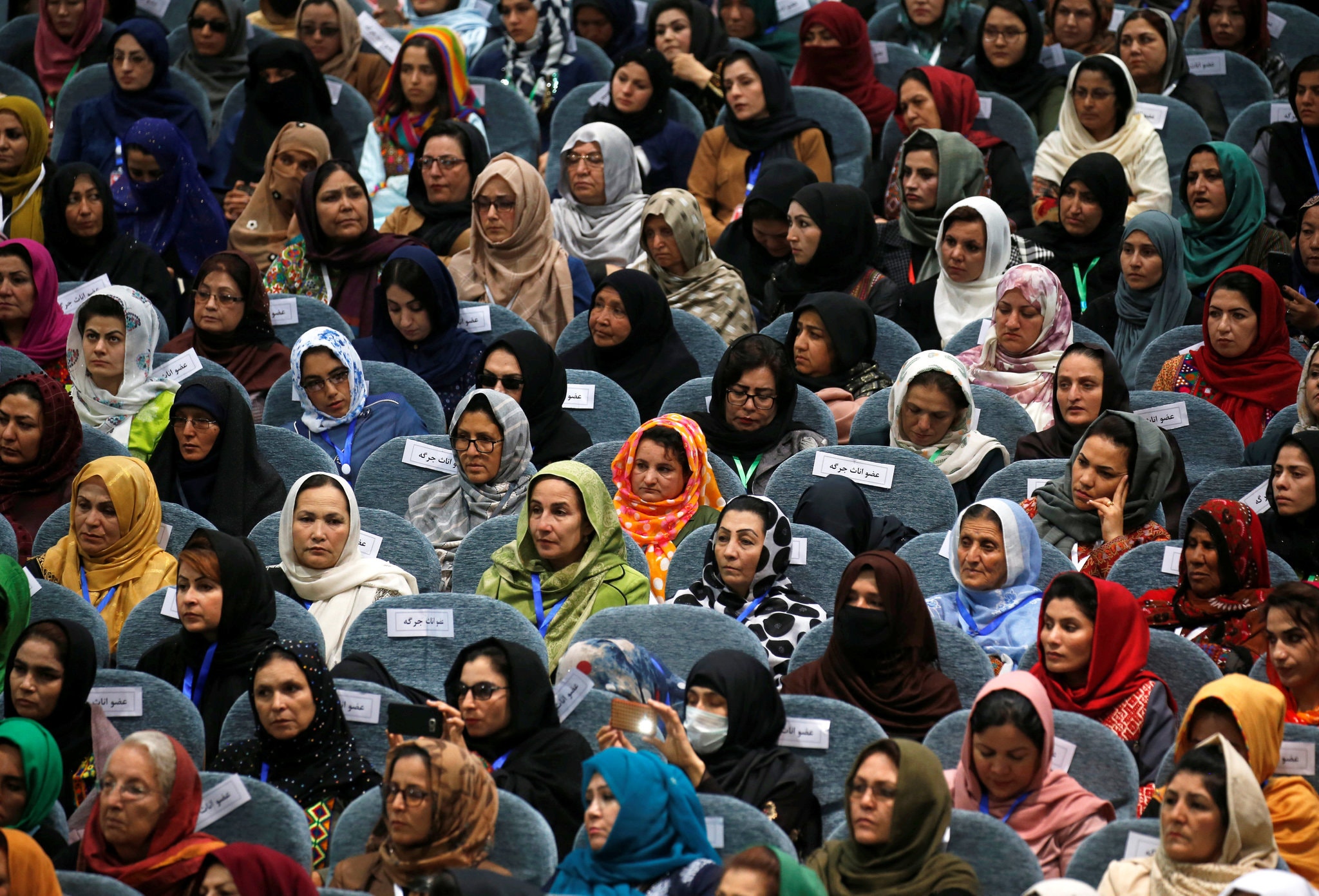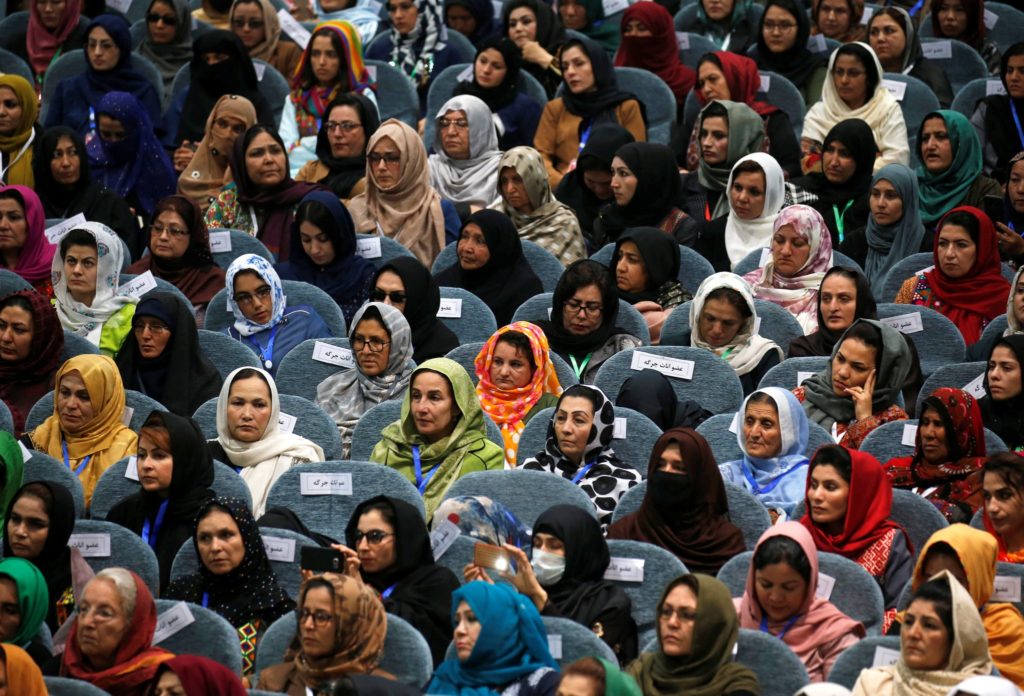President Trump met with his National Security advisers on Friday to finalize approval of an agreement with the Taliban to withdraw American troops from Afghanistan. As he did so, a debate began to arise, rather belatedly, over the consequences of such an action. Trump’s past statements on Afghanistan have offered little in the way of coherent thought and there is little reason to hope that his grasp of the situation has improved. The one thing that apparently motivates our president is a perception of political advantage in having American troops out of Afghanistan before the 2020 election. That approach is consistent with the transactional amorality, and consuming appetite for political gain, that are his hallmarks.
As the New York Times explained the president’s mindset:
For Mr. Trump, initiating a departure from Afghanistan would allow a president who once promised to “bomb the hell out of” terrorists and has spoken of wiping Afghanistan “off the face of the earth” to present himself as a peacemaker.
That could be particularly useful at a moment when his nuclear diplomacy with North Korea has achieved little tangible promise and his “maximum pressure” campaign against Iran has failed in its goal of bringing Tehran to the negotiating table.
Reasonable people can disagree on our strategy in Afghanistan, but the 2020 election should hardly be a deciding factor.
Details of the proposed agreement remain sketchy, but the exclusion of the Afghan government in the negotiations with the Taliban is a fundamental reason for serious concern. (The image of Neville Chamberlain negotiating away Czech territory at Munich inescapably comes to mind.) Under the prospective agreement, it seems, American withdrawal would not be contingent upon the Taliban reaching a cease-fire with the Afghan government or people, let alone any more permanent agreement. If American military support disappears, however, many believe that the Afghan government is unlikely to survive a prolonged campaign by the Taliban. And if it does fail to survive, the consequences for the Afghan people—and particularly its women and children—will be severe.
Even viewed solely from the standpoint of American national security, the agreement is highly questionable. Reportedly, the proposed agreement with the Taliban would call for a phased withdrawal of American troops over at two year period. (There are currently 14,000 American troops in Afghanistan, of which 8,000 are part of the NATO command.) In exchange, the Taliban would supposedly agree to contain terrorism from Al Qaeda, ISIS or others, but the determination and capacity of the Taliban to carry out such a responsibility over any extended period is highly doubtful. Moreover, any means of enforcing the Taliban’s commitment would likely be illusory. Perhaps the deal with the Taliban will appear more plausible if it is finalized and the details are disclosed. Nevertheless, on the basis of the information presently available, the arrangement appears to be one that betrays an ally and puts at risk not only our honor but our national security.
Warning flags have appeared from some Republicans on Capitol Hill. Most prominent among them is Lindsey Graham, lately a Trump toady, who must have had a nocturnal visit from the ghost of John McCain. As Graham put it:
I hope … President Trump and his team make sound and sustainable decisions about radical Islamist threats emanating from Afghanistan — the place where 9/11 originated….[U.S. troops] are not acting as policemen in Afghanistan. They are the front-line defense for America against the reemergence of radical Islamist groups who wish to attack the American homeland.
Graham played to the President’s antipathy for his predecessor.
To trust the Taliban to control al-Qaeda, ISIS-K, and other radical Islamist groups present in Afghanistan — as a replacement for a US counterterrorism force — would be a bigger mistake than Obama’s Iranian nuclear deal. Any peace agreement which denies the US a robust counter-terrorism capability in Afghanistan is not a peace deal. Instead, it is paving the way for another attack on the American homeland and attacks against American interests around the world.
Notably, Graham failed to address the separate but closely related issue of human rights under an Afghan regime controlled by the Taliban.
Democrats, for their part, have had little to say about what an American departure from Afghanistan might mean for human rights or national security. From the copious contingent of presidential candidates at the Democratic debates, only John Hickenlooper—now withdrawn from the race—expressed any concern over the consequences of a withdrawal. Hickenlooper warned that “If we completely pull our troops out of there, you’re going to see a humanitarian disaster that will startle and frighten every man, woman, and child in this country,” but no other Democrat paused to either agree or disagree with his assessment.
The future of women’s rights and human rights was addressed by Afghanistan’s Ambassador to the United States, Roya Rahmani, in a recent New York Times interview. According to the Times, the Ambassador personally recalled a Kabul when people put blankets over every window to keep Taliban religious police from seeing anything, no matter how innocuous, that might merit a beating. “People were drained of hope” and were “living zombies,” Rahani said. In the same era, women were beaten for leaving their homes and barred from attending school or holding jobs. Today, Rahani noted, women make up 28 percent of the Afghan National Assembly — more than in the United States Congress. Of necessity, the Ambassador spoke in guarded diplomatic terms with respect to a prospective settlement with the Taliban, but her concerns were clear as she insisted that any such settlement must provide an environment that is “free of fear and abuse.”
There are some indications that Taliban attitudes toward human rights have softened over the past 20 years, but the evidence is conflicting at best. Presumably an agreement with the Taliban could incorporate some assurances as to human rights, but how genuine and how reliable such assurances might be is open to serious question.
Turning to American security, the implications of the proposed settlement are equally troubling, as David Petraeus emphasized in a powerful Wall Street Journal essay, “The U.S. Abandoned Iraq. Don’t Repeat History in Afghanistan.”
Petraeus’s warning was blunt:
Until the Taliban demonstrate they have both the determination and the capability to work with the Afghan government against international terrorists—and there is ample reason to doubt this—common sense dictates the U.S. must retain its own means to pressure extremist networks plotting against the American homeland and U.S. allies. This can be accomplished only by having some number of capable American forces in Afghanistan, along with substantial “enablers” such as unmanned aerial vehicles and close air support.
* * * *
The Taliban have clearly indicated what they will try to do once U.S. forces are gone: overthrow the Afghan government and reimpose medieval rule. Their resistance to a formal cease-fire, continued barbaric attacks on civilians, and opposition to elections scheduled for this fall are all warning signs. Such a conflagration is likely to reinvigorate the flagging fortunes of Islamist extremism world-wide and the global terrorist threat—which, despite the destruction of Islamic State’s territorial caliphate in Iraq and Syria, is by no means defeated.
Ironically, our NATO allies, whom Trump is often wont to disparage, have shown more backbone than has our president. NATO’s Afghanistan mission, Resolute Support, includes approximately 8,000 troops from 39 countries (in addition to U.S. troops). As recently as a June 27, 2019 speech in Australia, Secretary General Jens Stoltenberg, reaffirmed the NATO commitment:
NATO is strongly committed to Afghanistan. We have recently generated forces for the next rotation, throughout next year. And we have confirmed our financial support for the Afghan security forces through 2024. We will stay in Afghanistan for as long as necessary, to ensure the country never again becomes a safe haven for international terrorists. We went into Afghanistan together and we will take decisions about the future of our mission together.
Despite the strength of that commitment, however, a withdrawal of United States forces from Afghanistan, would almost certainly create a “negative leverage”—precipitating withdrawals of troops by NATO members and other participating countries.
Advocates of withdrawal often refer to our effort in Afghanistan as an 18 year “war,” but the fact is that our current mission is primarily one of training and support. Ten American soldiers were reportedly killed in action this year, but we will dishonor their deaths, as well as the 2,420 that preceded them in Afghanistan, if we return that country to the Taliban and see it become a home for domestic atrocities and a base for international terrorists.


Hi Doug,
Thank you for this look back at Afghanistan!.
The Russian fought fiercely and insuccessfully and we cheered on for a Taliban victory. We supplied arms, advisors and public support and cheered for the Taliban at that time.
Now, we support the factions that are anti Taliban.
Pretty myopic and short sighted polices from our myopic government……..
The adage, “ The enemy of my enemy is my friend.” Must have been our rallying cry.
We were wrong then and we are wrong now to continue this non winnable resource draining policy.
I am glad that not one more service person will die or be injured in Afghanistan because of political ambiguity. If Congress, the President, or political opportunists, want to send more young people in to battle, the service enlistment booths are available 24/7 and will be pleased to consider their applications to serve.
Imagine how much we could have accomplished for our country, solving monumental social problems.
Leaving Afghanistan is not a vote for or against President Trump.
We are not the international peace force.
The United Nations, is the police force for most all nations, albeit, ineffectual.
Our ambassador should propose a unified opposition to tyranny in all corners of this world.
Thanks for listening to the ramblings of an old man and proud to be an American veteran.
Bob
A correction: The initial post incorrectly referred to Neville Chamberlain negotiating away Polish territory and should have referred to Czech territory (the Sudetanland).
The Washington Post has an excellent editorial on the subject, “Trump risks turning a chance for success in Afghanistan into a shameful failure.” https://beta.washingtonpost.com/opinions/global-opinions/trump-risks-turning-a-chance-for-success-in-afghanistan-into-a-shameful-failure/2019/08/19/d60958da-c29e-11e9-9986-1fb3e4397be4_story.html
Doug, thank you for such a moving, well written and informative post. I think you nailed the motivation for such a decision, and supplied opinions from people such as General Petraeus, who well know the limitations of Taliban promises and the likely outcome of reliance on them. Dare we hope he listen to them?
Hope springs eternal …but seems unlikely to be warranted in this case. Our President is a narcissist, and this affects every action he takes. In Donald Trump’s universe, his perception is the only correct one. Everything revolves around him and his insistence on this takes the form of aggression, manipulation and often, ill-conceived decisions. Recall his recent hospital visit in El Paso and his decision to comment afterward about how everyone loved him …were happy to see him…rather than to express sorrow or encouragement for the injured. He clearly was either unaware or uncaring of how inappropriate such comments might be at that moment. Perhaps, as a narcissist, he can’t help himself. It’s a pattern that has been displayed many times over since Trump took office.
Certainly government experience is helpful and knowledge is important. But in such a powerful position, it’s ultimately essential to see nuance, feel empathy, and take a variety of opinions before making decisions with long reaching consequence. We can only hope that our President can somehow put his own election goals aside long enough to take the advice offered by those in your post who best understand the complexity surrounding our military presence in Afghanistan.
Comments are closed.